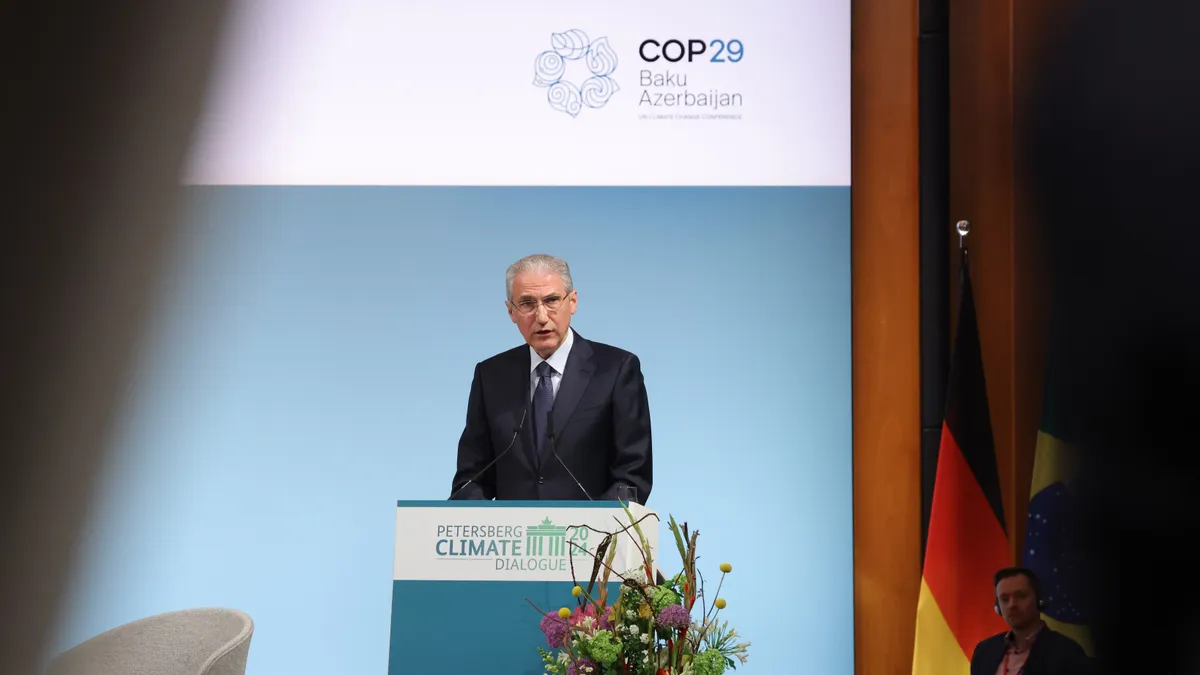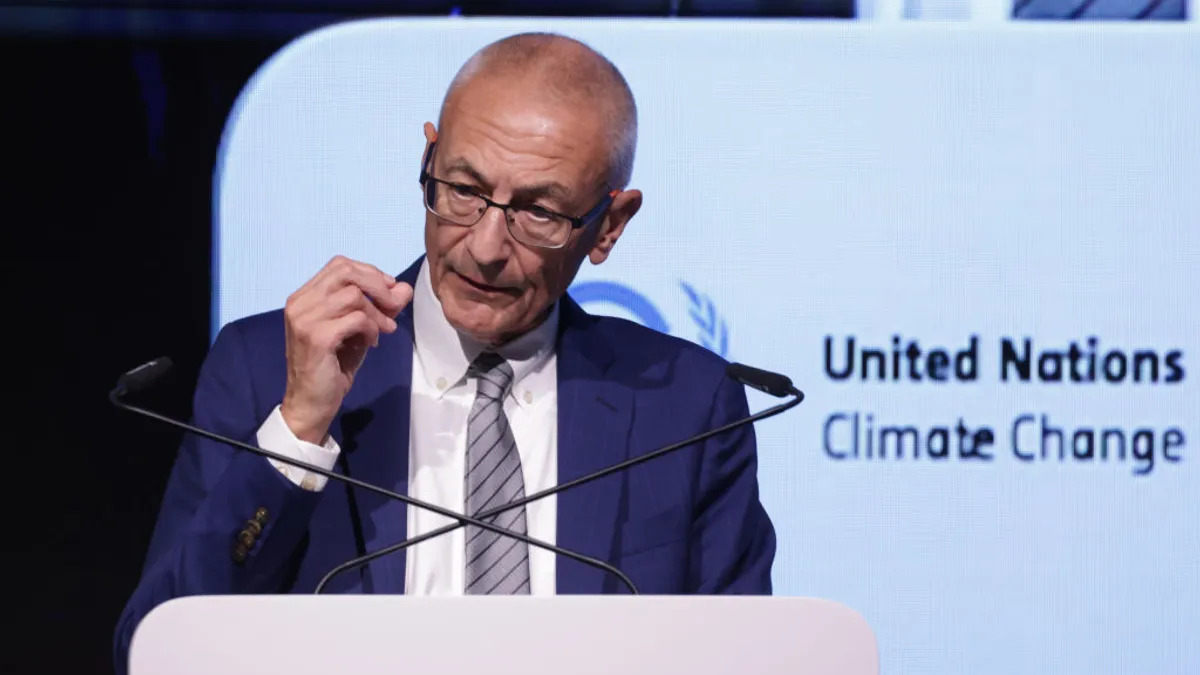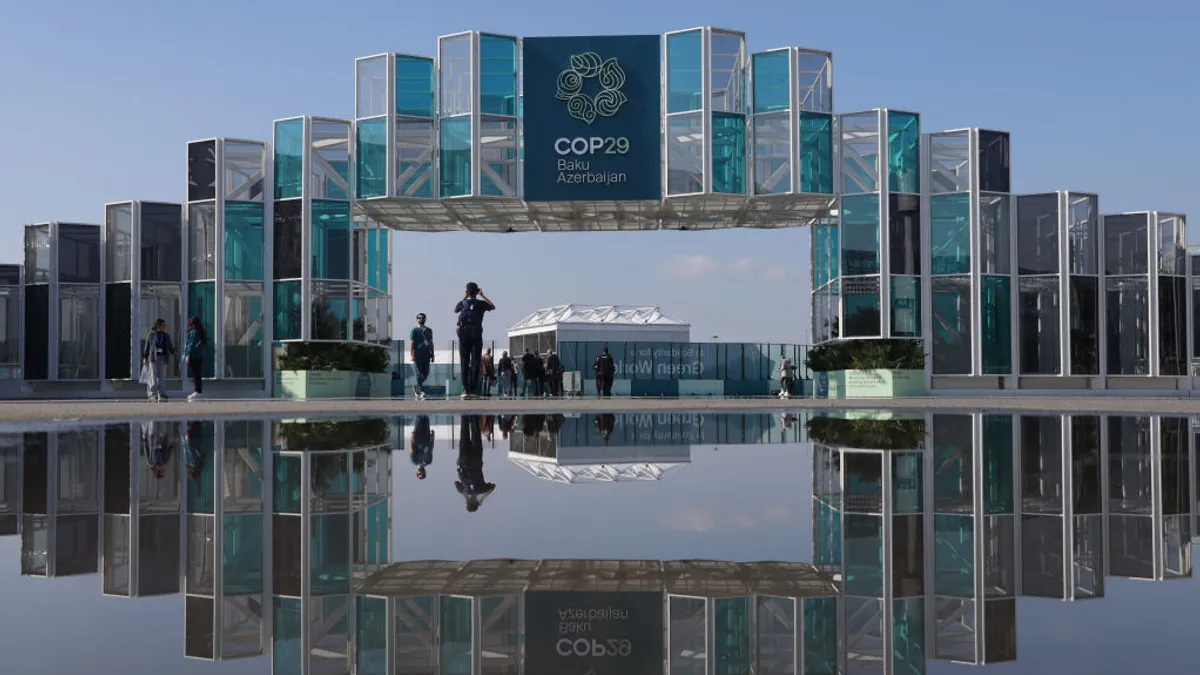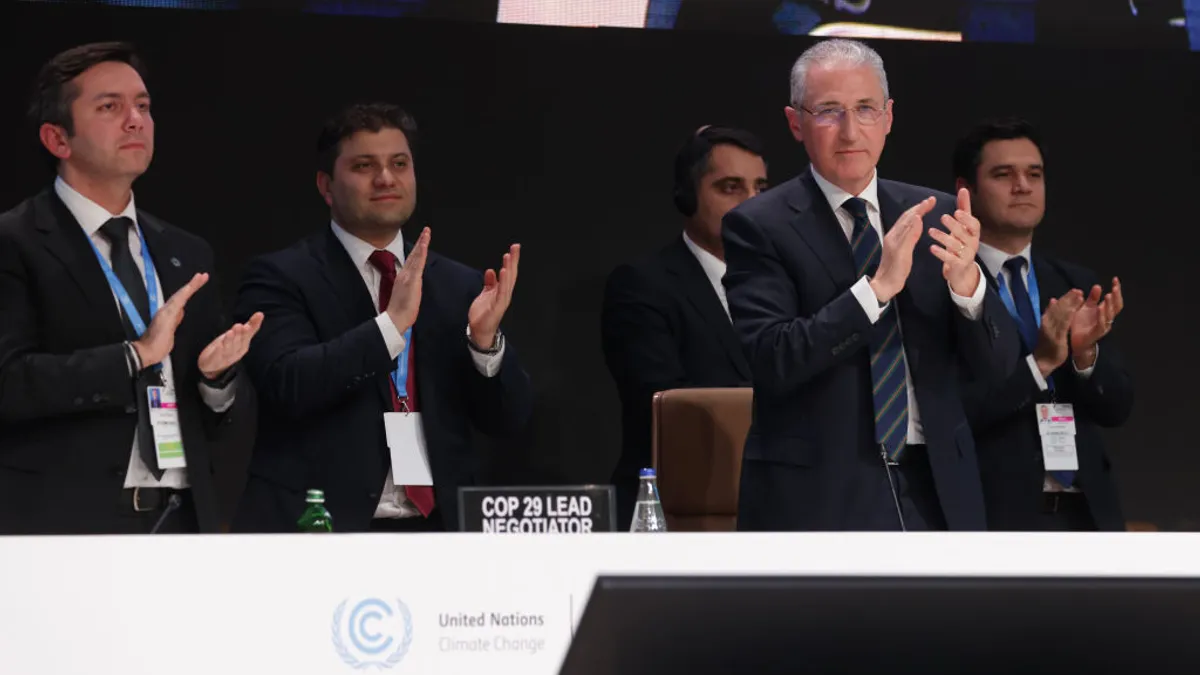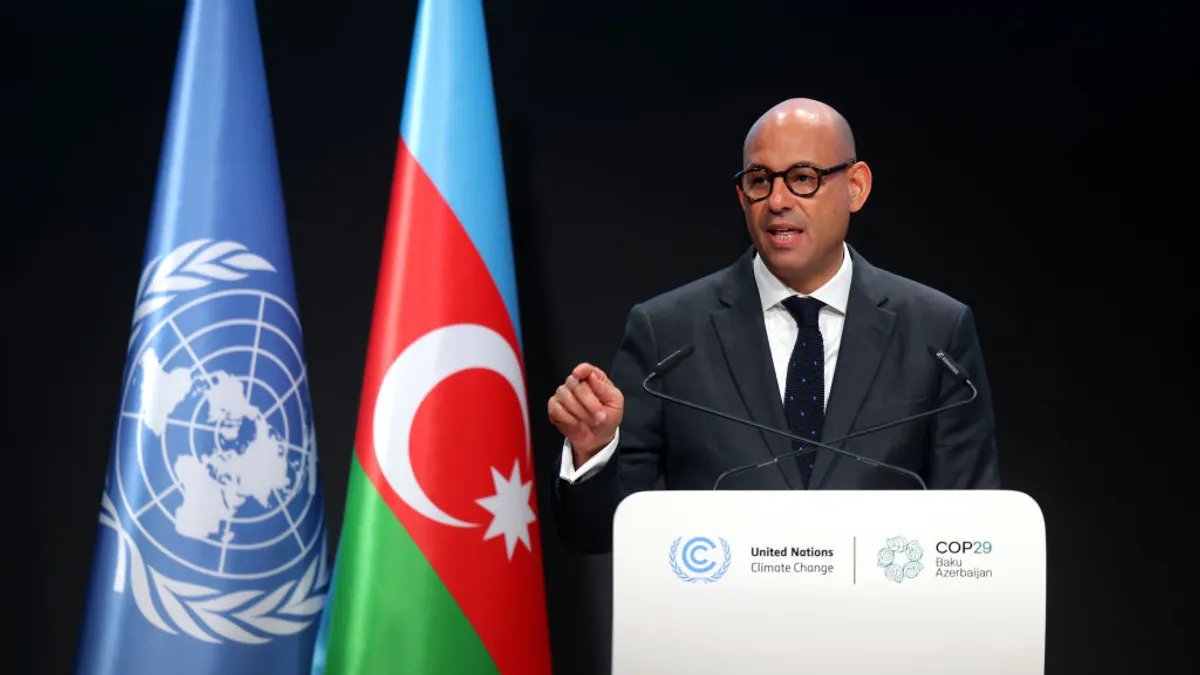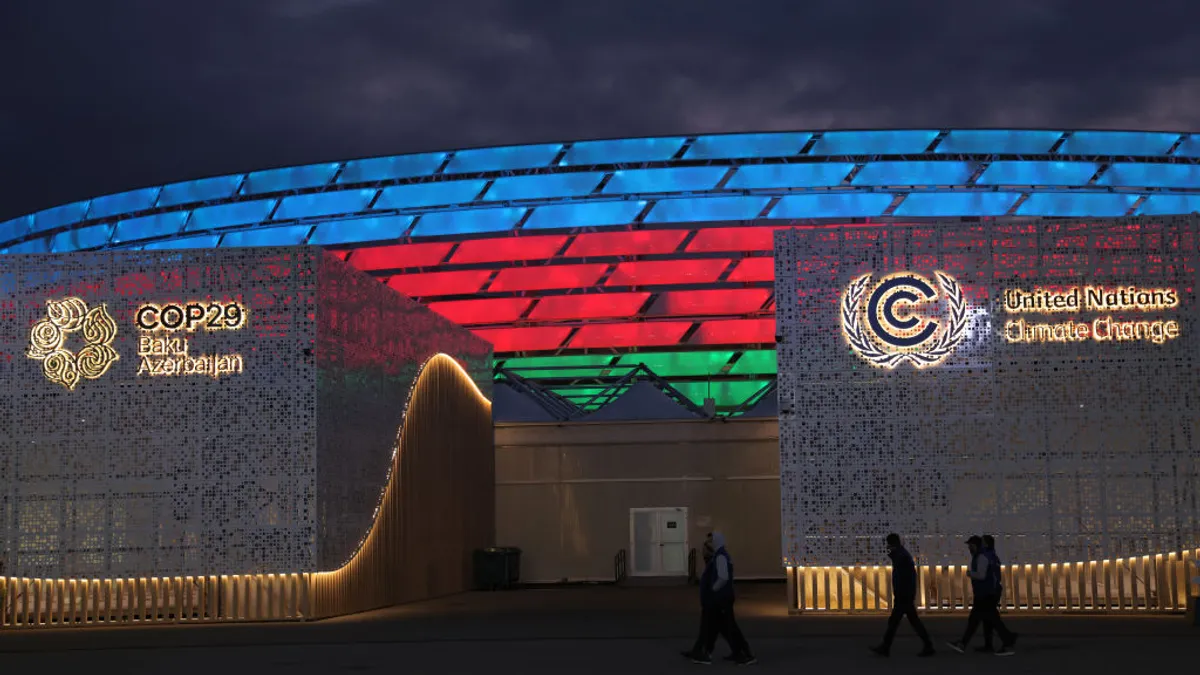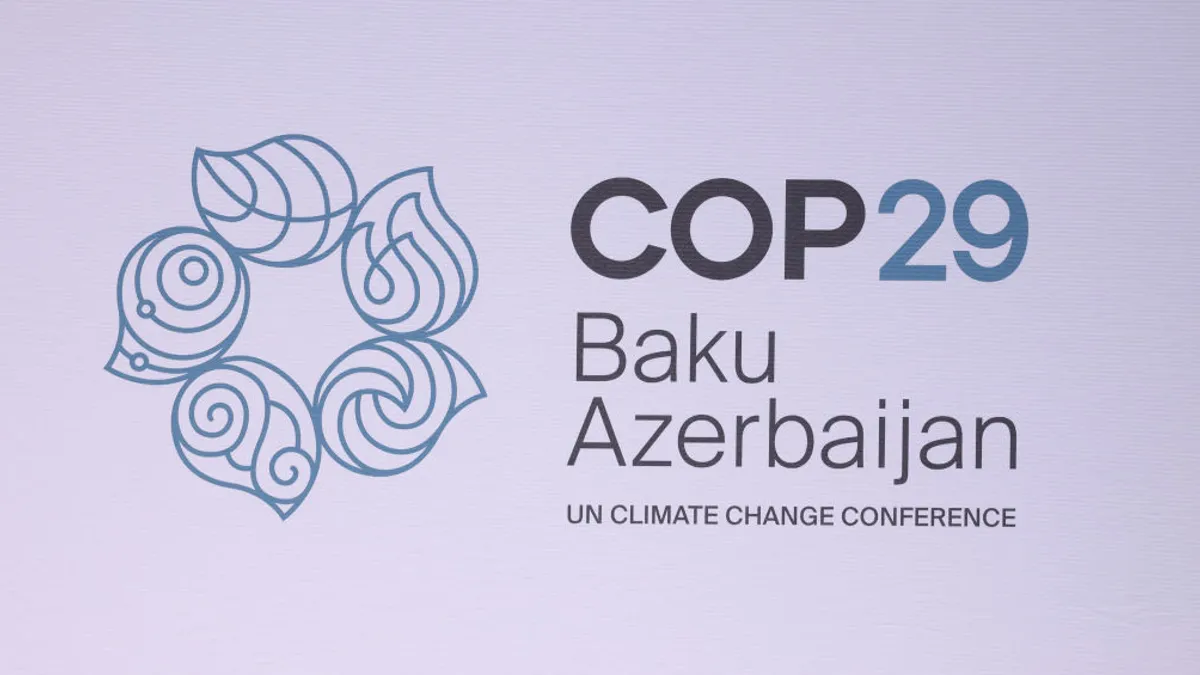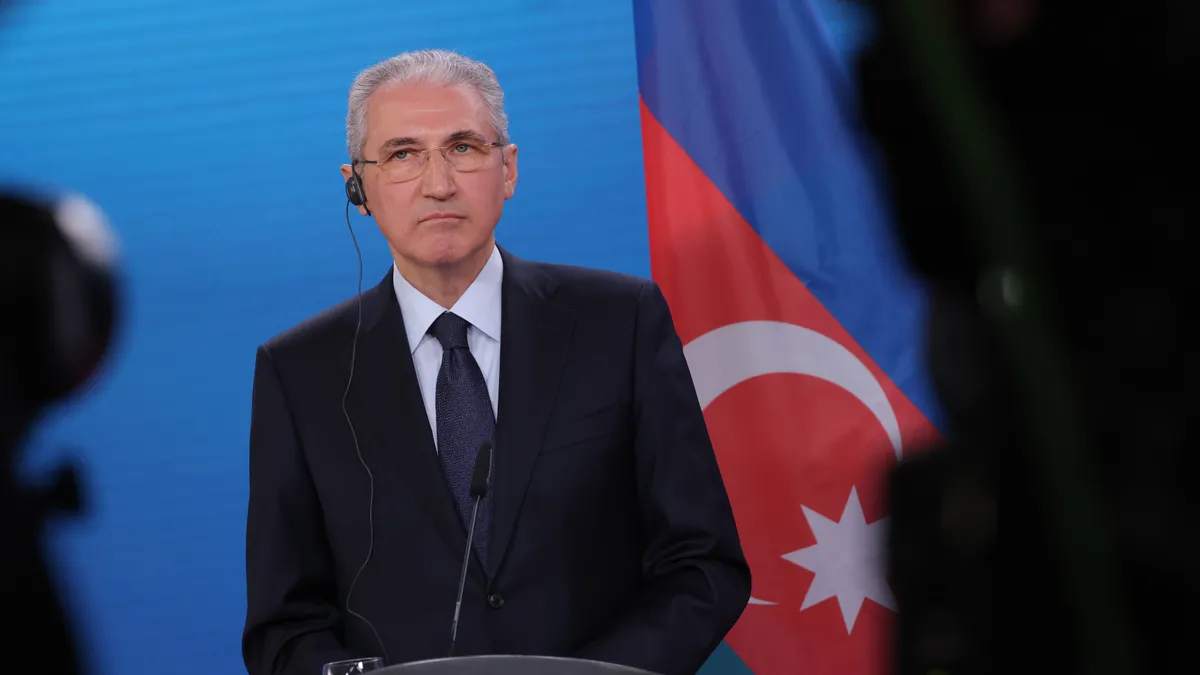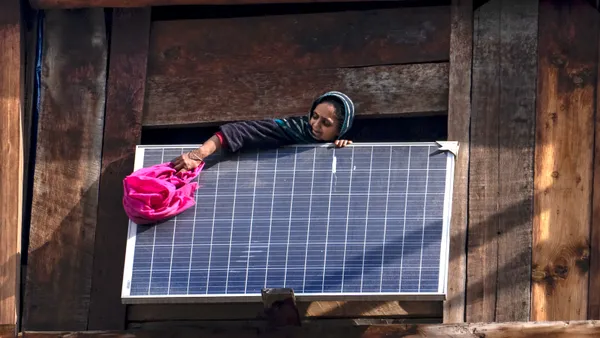Dive Brief:
- The COP29 president-designate unveiled the climate action themes and goals that will be the focus of discussions at November’s summit in a letter addressed to parties and constituencies last week.
- Azerbaijan Minister of Ecology and Natural Resources Mukhtar Babayev, who was appointed to preside over COP29 in January, called climate finance a “top negotiating priority” for the summit. His letter emphasized the need to agree on a “fair and ambitious” goal which was “adequate to the urgency and scale of the problem” and accounted for the needs of developing countries.
- Babayev also said he was committed to finalizing the implementation of Article 6 of the Paris Agreement, which sets guidelines for how countries can collaborate to achieve their climate targets, at this year’s summit. Article 6 not only boosts international cooperation and sustainable development, but also helps unlock financial support for developing countries, per the 2021 update to the agreement.
Dive Insight:
Article 6 was approved at the COP26 summit in Glasgow, Scotland and established a rulebook on governing carbon markets as part of the Paris Agreement. Under Article 6, countries can transfer carbon credits produced through the reduction of greenhouse gas emissions to assist other countries in meeting their climate goals. This transfer mechanism helps developing countries adapt to a low-carbon transition and also incentivizes climate action by encouraging countries to earn carbon credits through phasing out fossil fuels or increasing renewable energy use.
The World Bank Group estimated that such a carbon credit transfer system is estimated to slash the cost of implementing countries’ enhanced emissions reductions plans — or Nationally Determined Contributions — by over half or as much as $250 billion in 2030.
Though set as a separate goal by Babayev, the finalization of Article 6 builds on the president-desigate’s ambition to prioritize climate finance at the summit, which he called “one of the most challenging topics in the negotiations and climate diplomacy more broadly.” Babayev said he aims to scale political engagement on this topic during November’s discussions and plans to involve ministries of finance or equivalent parties early in the negotiating process.
Babayev also stressed the importance of making the Loss and Damage fund fully operational. He said operationalizing the fund — which helps developing countries that are particularly vulnerable to climate change respond to economic and non-economic losses and damages — will allow it to begin distributing the “much needed and long-awaited funds” as soon as possible.
Babayev said countries also needed to implement the outcomes of last year’s Global Stocktake, a United Nations-backed global assessment of the progress made toward achieving the Paris Agreement goals. The stocktake concluded 22 gigatons of greenhouse gasses must be removed within the next seven years to keep the 1.5°C goal within reach.
“Responding to the Global Stocktake, we all need to have National Adaptation Plans, policies and planning processes in place by 2025 so that we can make progress in implementing them by 2030,” Babayev wrote in his July 17 letter. “These plans will guide how we share best practice, transfer technology, and support each other’s ambitions.”
The president-designate pointed to the approaches and pathways countries would have to take to stay on track for the 1.5°C goal, which include tripling renewable energy capacity and doubling the global average annual rate of energy efficiency by 2030.
The United Nations COP29 climate change summit is slated to take place Nov. 11-22 in Baku, Azerbaijan.



